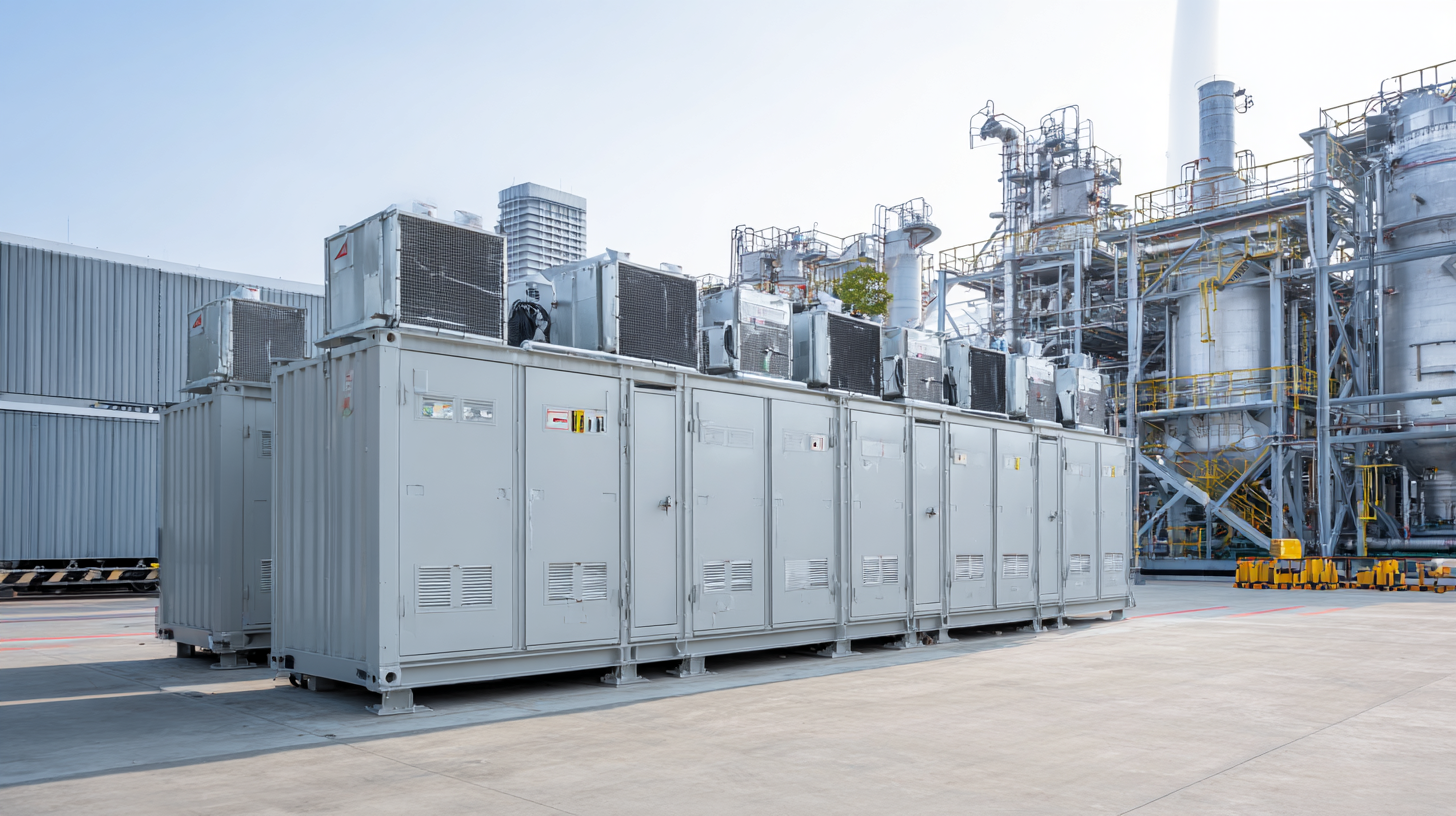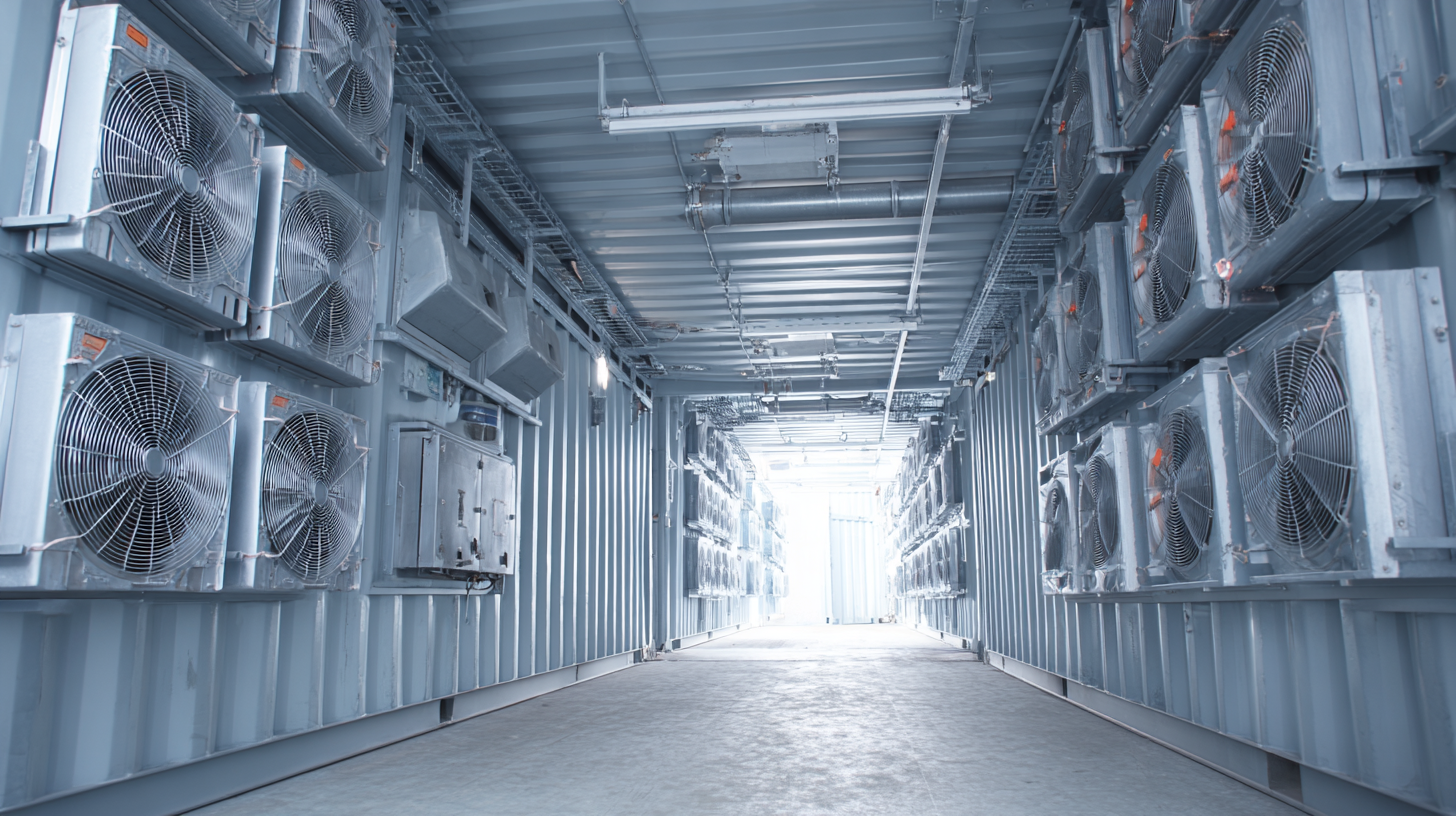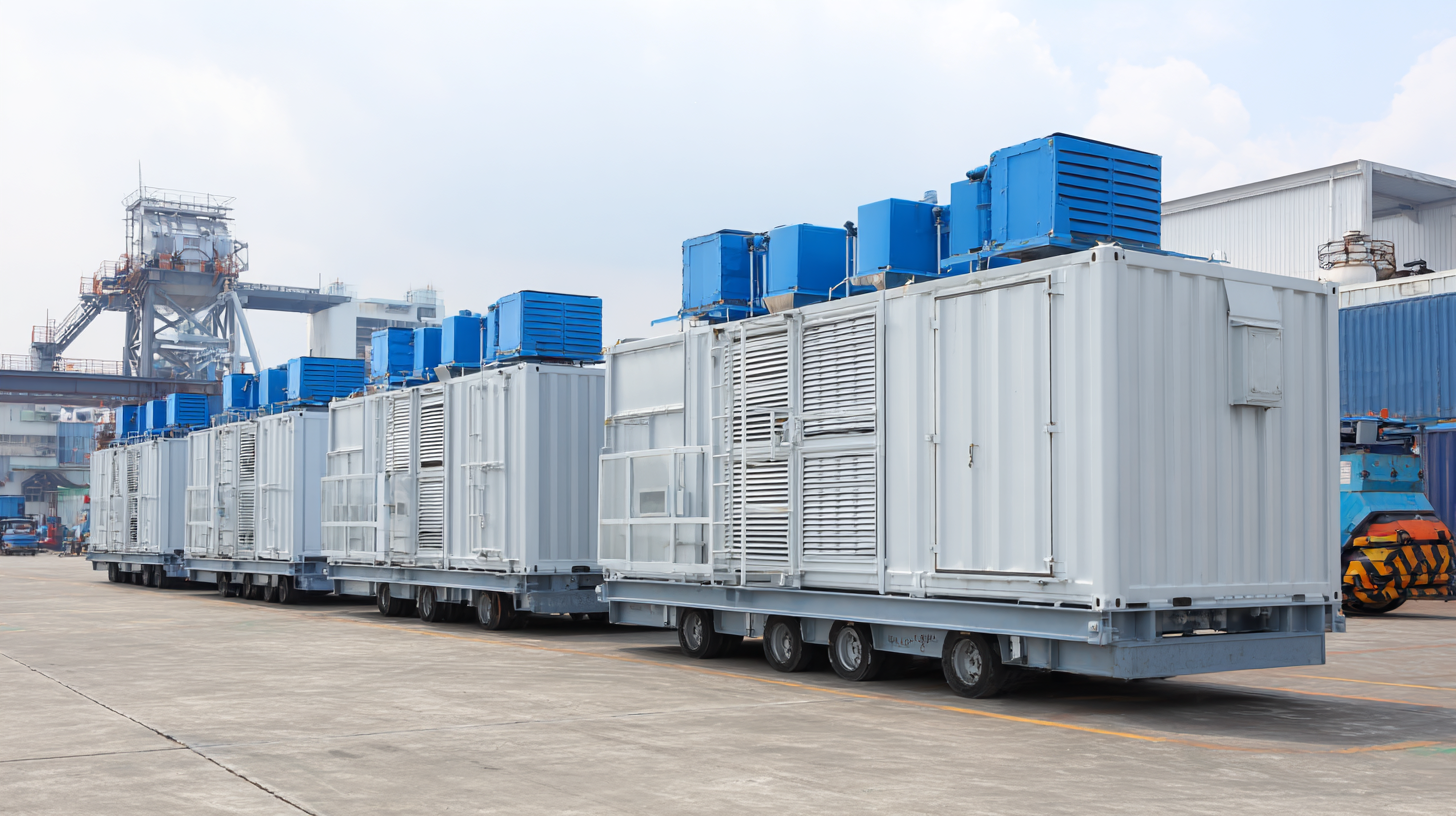
- sales@bjbod.com
- Mon - Sat at 7:00AM to 9:00PM

In today's rapidly evolving global marketplace, the efficiency of supply chains is paramount for businesses striving to maintain a competitive edge. One often overlooked yet crucial aspect of optimizing these supply chains is the quality of the air in industrial environments. Enter Industrial Air Purifiers, essential tools designed to enhance air quality and, by extension, operational efficiency. This comprehensive guide highlights seven compelling reasons why investing in the best industrial air purifiers is not merely an option but a necessity. From improving worker health and safety to ensuring compliance with regulations, these purifiers play a vital role in fostering a productive atmosphere. By understanding the importance of clean air in industrial settings, businesses can significantly streamline their processes, reduce downtime, and ultimately achieve greater supply chain efficiency.

Air quality is a crucial factor influencing industrial production standards and efficiency. In environments where precision and quality control are paramount, contaminants in the air can lead to significant challenges. Particulate matter, volatile organic compounds, and other pollutants not only affect the health of workers but also compromise the integrity of the products being manufactured. By integrating high-quality air purifiers into industrial settings, companies can mitigate these risks, creating a safer and more productive atmosphere that aligns with global production standards.
Furthermore, maintaining optimal air quality can enhance operational efficiency. Clean air ensures that machinery runs smoothly and reduces the frequency of breakdowns caused by dust and other pollutants that can accumulate in equipment. This translates to less downtime and higher output, ultimately benefiting the bottom line. As industries become more interconnected through global supply chains, delivering consistently high-quality products becomes essential, making the adoption of industrial air purifiers not just a health measure, but a strategic investment for sustained efficiency and growth.
| Reason | Impact on Production | Air Quality Improvement | Health Benefits | Regulatory Compliance |
|---|---|---|---|---|
| Reduced Absenteeism | Increases workforce availability | Removes harmful pollutants | Improves employee health | Meets occupational safety standards |
| Enhanced Equipment Longevity | Reduces maintenance costs | Decreases dust accumulation | Lower risk of industrial accidents | Supports environmental regulations |
| Improved Product Quality | Enhances product consistency | Filters out airborne contaminants | Promotes safer food and pharmaceutical production | Aligns with quality assurance standards |
| Increased Operational Efficiency | Streamlines production workflow | Enhances indoor air circulation | Reduces employee fatigue | Fulfills health and safety requirements |
| Sustainability Initiatives | Aligns with green manufacturing practices | Reduces energy consumption | Supports corporate social responsibility | Meets eco-friendly certifications |
In the fast-paced environment of manufacturing, worker health and safety are paramount. Industrial air purifiers play a crucial role in maintaining high air quality, which directly impacts worker wellbeing. By removing hazardous particles, volatile organic compounds (VOCs), and allergens from the air, these purifiers create a safer workspace. When employees are less exposed to airborne pollutants, not only do their health outcomes improve, but productivity levels also rise, as a healthy workforce is less prone to illness and absenteeism.

Enhancing worker safety goes beyond just breathing cleaner air. Industrial air purifiers contribute to compliance with health and safety regulations, which are increasingly stringent across various sectors. By investing in quality air purification systems, manufacturers demonstrate their commitment to safeguarding their employees. This proactive approach not only enhances the overall working environment but also fosters a culture of safety and responsibility, leading to greater employee satisfaction and retention in the long run. As companies continue to prioritize health and well-being, industrial air purifiers emerge as a non-negotiable component of a modern and efficient manufacturing strategy.
In today's global supply chain landscape, efficiency is paramount, and one often-overlooked factor influencing this efficiency is air quality. Statistical studies have shown a strong correlation between clean air environments and reduced supply chain disruptions. Contaminants in the air, such as particulate matter and volatile organic compounds, can lead to increased health issues for workers, resulting in absenteeism and diminished productivity. Consequently, organizations investing in high-quality industrial air purifiers not only promote a healthier workplace but also mitigate risks that can cause delays in logistics and production processes.
Moreover, the impact of clean air extends beyond immediate employee health; it significantly affects machinery and equipment longevity. Dust and pollutants can accumulate in manufacturing environments, causing wear and tear on machinery. Regular air purification can enhance equipment performance, minimizing maintenance costs and operational downtime. By ensuring a clean air supply, businesses can bolster their ability to adapt to market demands and maintain a steady flow of goods, ultimately leading to a more robust and resilient supply chain.

In today's industrial landscape, air quality plays a crucial role in ensuring efficient supply chain operations. Advanced industrial air purifiers are not just essential for maintaining worker health; they also contribute significantly to energy savings and cost benefits. According to a report by the U.S. Department of Energy, proper air filtration can reduce energy costs by up to 30%, as clean air systems operate more efficiently, translating to lower operational expenditures over time.
Investing in high-quality air purifiers can yield substantial financial returns. A study from the International Association of Indoor Air Quality suggests that enhanced air quality can boost productivity by 15%. With fewer sick days and heightened morale, companies often see an increase in output that outweighs the initial investment in air purification technology.
Tip: When selecting an industrial air purifier, consider models with energy-efficient ratings. Look for solutions that not only filter pollutants but also minimize energy consumption—optimizing both environmental impact and profitability.
Furthermore, regular maintenance of air purification systems can lead to additional savings, as cleaner filters and units lead to better performance and lower energy use. Prioritizing sustainable practices like these adds long-term value to your operations.
This chart illustrates the estimated annual savings in dollars from various benefits of using advanced industrial air purifiers. The data highlights how low energy consumption, maintenance cost reductions, and other factors contribute to overall cost efficiency in the supply chain.
Compliance with global air quality regulations is increasingly becoming a necessity for competitive supply chains. Businesses that operate internationally must adhere to stringent environmental standards to avoid penalties and potential disruptions. Ensuring that the air quality within manufacturing and storage facilities meets these regulations not only demonstrates corporate responsibility but also enhances operational efficiency. Non-compliance can lead to increased costs and damage to brand reputation, underscoring the importance of investing in high-quality air purification systems.
To ensure compliance, businesses should regularly assess their air quality metrics and invest in industrial air purifiers that are certified to meet international regulations. Additionally, establishing an internal monitoring program can help track air quality in real-time, providing data that can be leveraged to make informed operational choices.
Another crucial tip is to train employees on the importance of air quality management. Raising awareness can foster a culture of compliance, where all team members are proactive in maintaining a clean working environment. Implementing regular audits of air quality and purification systems can also ensure that any issues are identified and addressed promptly, thus maintaining operational integrity within the supply chain.